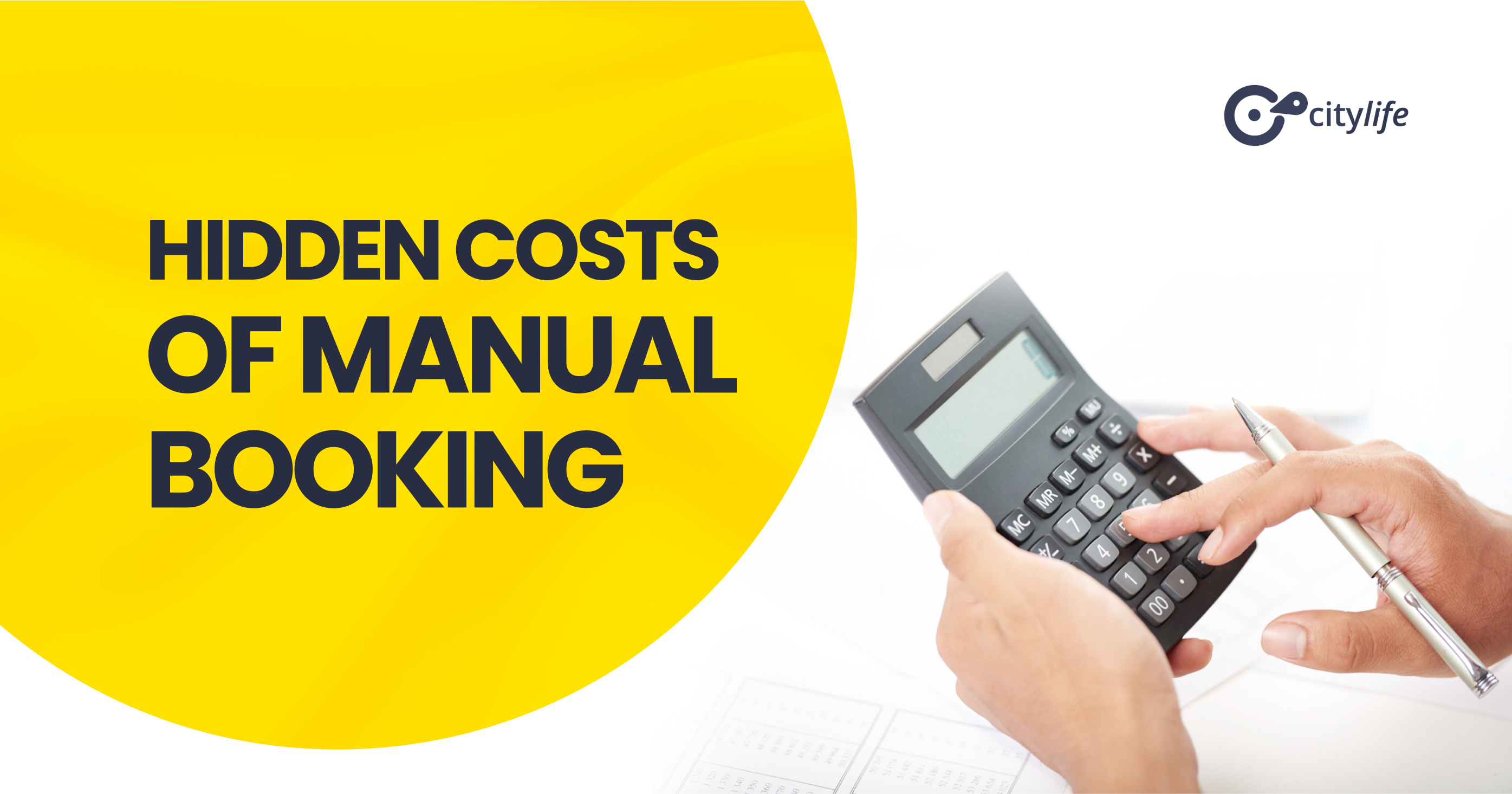As the world transitions into the usage of more technology, it is important that businesses adapt for ease. Although many businesses still rely on manual booking and payment processes because it is cost-effective at first glance, what they don’t know is that it hides a range of expenses that can drain resources, limit growth, and frustrate both customers and staff. When businesses understand these hidden costs, they should immediately start streamline operations and maximize profitability by eliminating manual booking and payments.
Here, let’s evaluate some hidden costs of manual booking and payment as well as how to eliminate them.
1. Time Drained on Administrative Tasks
One of the most significant hidden costs of manual booking and payment systems is the time spent on administrative tasks. Manual booking system requires staff members must handle each booking individually, juggle multiple phone calls, emails, or face-to-face interactions. This not only eats up valuable time but also increases the risk of errors—double bookings, missed appointments, or misplaced payments.
How to Avoid It: To tackle this as a business, you should implement an online booking system that automates the process, allowing customers to book and pay for services without needing direct interaction. This frees up staff to focus on higher-value tasks, such as customer service and business development. It also keeps staff heads out of clutter.
2. Chances Of Higher Risk of Errors
Manual processes are inherently prone to human error. From incorrect data entry to lost invoices; mistakes are inevitable. These errors can lead to customers dissatisfaction, financial discrepancies, and even legal issues if they’re not caught in time. We wouldn’t want a legal case now, would we?.
How to Avoid It: Allow your business transit to an integrated booking and payment system that minimizes human intervention. This system would capture accurate information and process transactions efficiently, hence reducing the likelihood of costly errors.
3. Limited Customer Convenience
In today’s digital age, customers expect convenience. Manual booking processes can be cumbersome, requiring customers to contact the business during specific hours or wait for confirmation. This lack of flexibility can deter potential customers and lead to loss in sales.
How to Avoid It: Upgrade as a business and offer 24/7 online booking and payment options that allows customers to book at their convenience. This option increases customer satisfaction and the likelihood of repeat business. Plus, with automated confirmations, there’s no waiting period—customers can secure their appointments immediately.
4. Lost Revenue Opportunities
Manual systems often fail to capture valuable customer data that could be used for marketing and upselling. Without this data, businesses miss out on opportunities to offer personalized services or targeted promotions, ultimately limiting revenue growth.
How to Avoid It: Make an effort to use an online booking system that integrates with your CRM (Customer Relationship Management) software. This allows you to track customer behavior, preferences, and purchase history, enabling more effective marketing strategies and upsell opportunities for your business.
5. Higher Operational Costs
Maintaining a manual booking and payment process can be more expensive than you realize. The costs associated with paper, printing, phone bills, and stealing into staff time. Additionally, manual processes often require more staff to manage the workload, further increasing operational costs.
How to Avoid It: Consider using booking systems to streamline operations. This reduces the need for physical resources and minimizes the number of staff required to manage bookings resulting in lower operational costs and a more efficient business model.
6. Increased Risk of Fraud
Manual payment processes can be more vulnerable to fraud, especially if cash transactions are involved. Without proper checks and balances, there’s a greater risk of theft, unauthorized transactions, or other fraudulent activities.
How to Avoid It: As a business, you have to a secure online payment system that includes fraud detection measures. These systems offer advanced security features like encryption, authentication, and real-time monitoring, protecting your business and customers from fraud.
7. Customer Trust & Reputation
Inconsistencies and errors in manual bookings can erode customer trust. A frustrated customer is unlikely to return, and negative word-of-mouth can damage your business’s reputation. In the long run, this can result in a significant loss of customers and revenue.
How to Avoid It: Build a reliable online booking and payment system offers a seamless experience, building customer trust and enhancing your business’s reputation. Happy customers are more likely to recommend your services to others, helping you grow your customer base.
The hidden costs of manual booking and payment processes can be substantial, affecting your business’s efficiency, profitability, and reputation. By transitioning to an online system, you can avoid these pitfalls, streamline your operations, and offer a better experience for both your customers and staff.
Ready to Ditch the Manual Hassle?
It’s time to take control of your business’s future. Don’t let the hidden costs of manual booking and payments hold you back. Sign up for City Life’s booking and payment system today and start enjoying the benefits of a streamlined, efficient, and customer-friendly process. Optimize your operations, reduce costs, and grow your business with ease. Get started now, Enjoy our one month trial.
